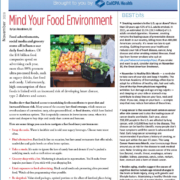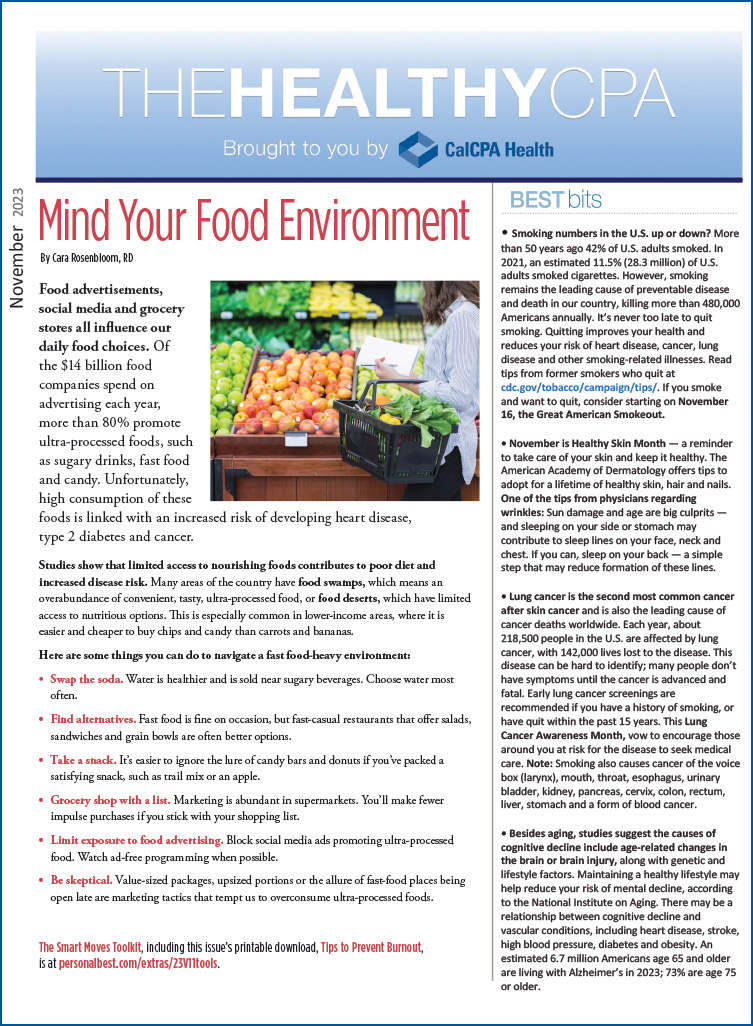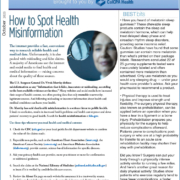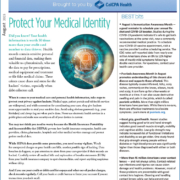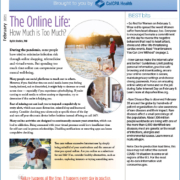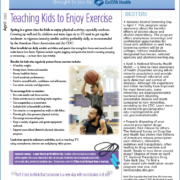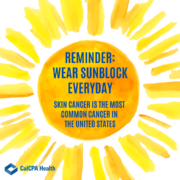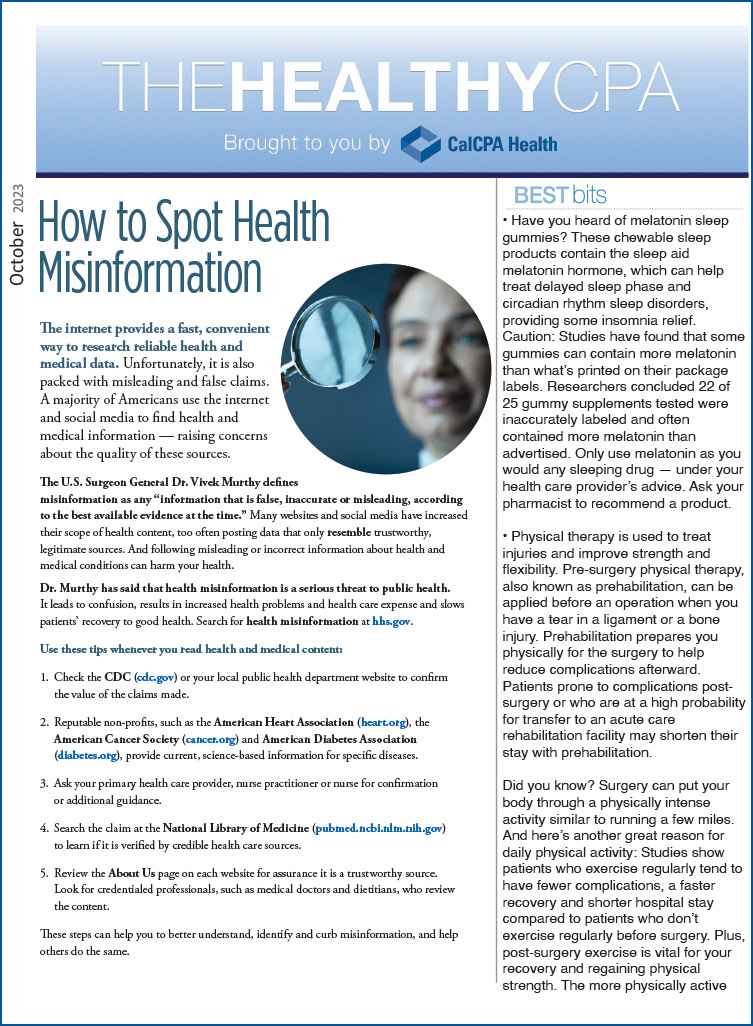 The eMagazine dedicated to improving members’ well-being
The eMagazine dedicated to improving members’ well-being
- How to Spot Health Misinformation
- Strength Training for Beginners
- National Depression Screening Day on October 5
- October is Breast Cancer Awareness Month
- What is Anemia?
In each issue you will find information and inspiration to help you with your health and wellness goals.
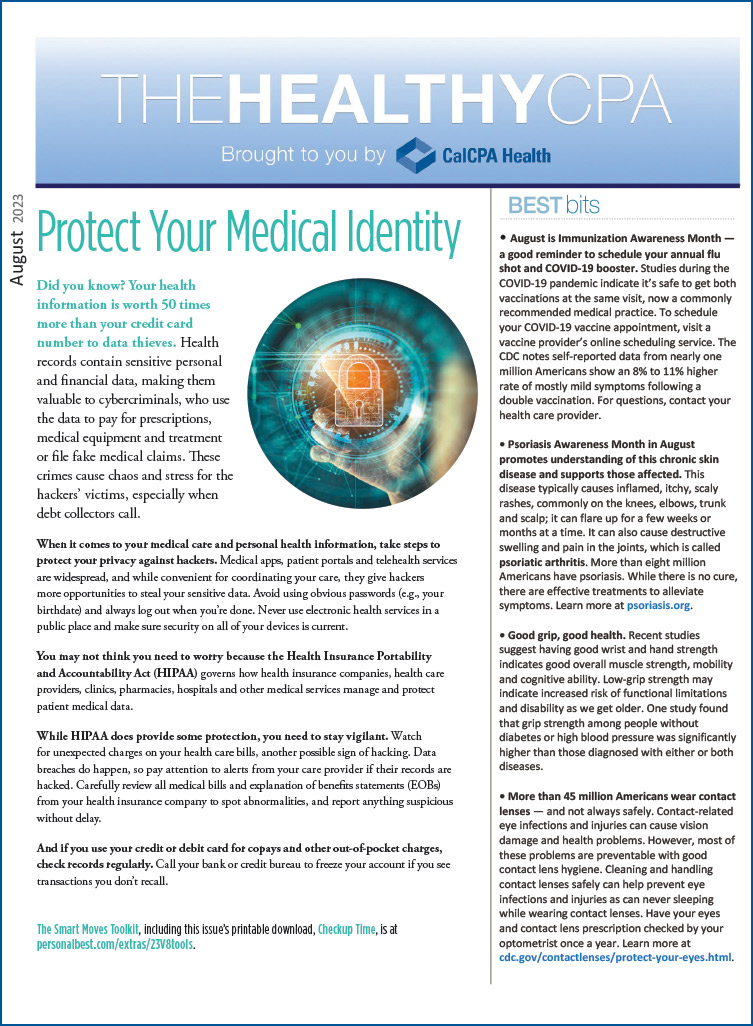 The eMagazine dedicated to improving members’ well-being
The eMagazine dedicated to improving members’ well-being
- Protect Your Medical Identity
- What Your Gut is Telling You
- Productivity Checkup
- Intermittent Fasting
- Stay Well Menu
- What are migraine auras?
In each issue you will find information and inspiration to help you with your health and wellness goals.
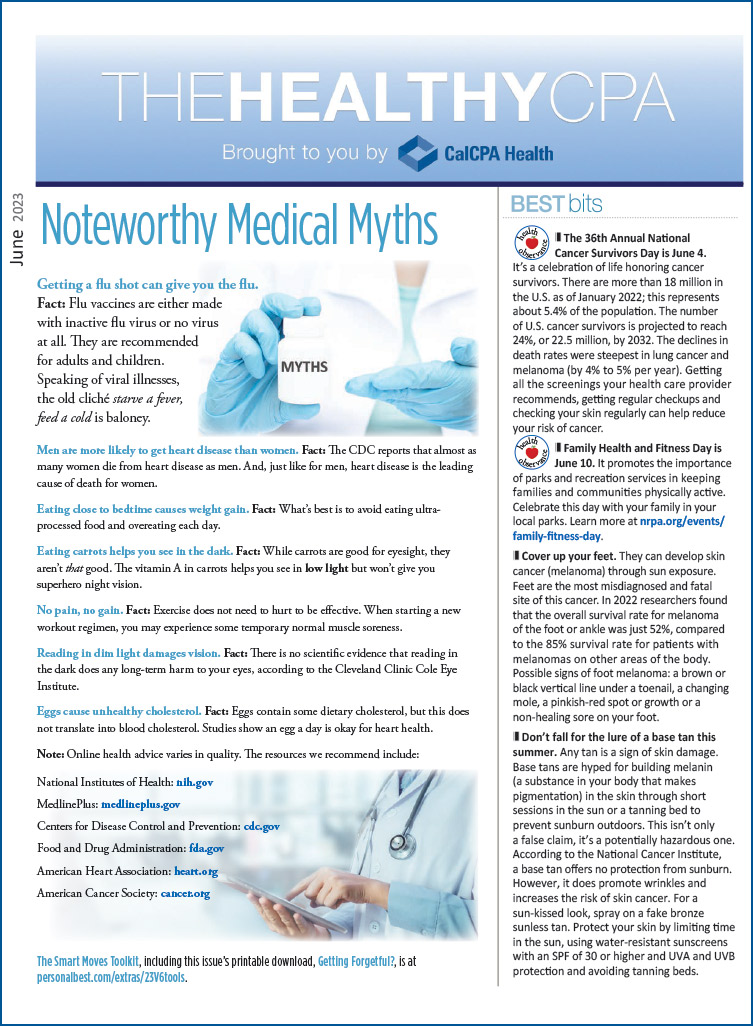 The eMagazine dedicated to improving members’ well-being
The eMagazine dedicated to improving members’ well-being
- Noteworthy Medical Myths
- Medication Interactions
- Do you have a healthy relationship with social media?
- What are Functional Foods?
- Mental health self-care tips
- Save a Life with CPR
In each issue you will find information and inspiration to help you with your health and wellness goals.
Mental Health Awareness Month is an annual observance that takes place in May. It’s a time to raise awareness of mental health issues facing our nation, be able to recognize warning signs, and encourage people to seek treatment if they need it. Mental Health Awareness Month has been observed in the United States since 1949, with the goal to erase the stigma around mental health and to provide support, awareness, and education on the topic.
The theme for Mental Health Awareness Month for 2023 is “Take Some Time to Look Around, Look Within” which encourages everyone–from individuals, families, employers, and policymakers to talk about this topic that touches all of us in one way or another.
Mental Health America (MHA) was founded in 1909 to help address the needs of those suffering from mental illness. Each year MHA releases a report on the state of mental health in America. In the 2023 report, studies show that in 2019-2020, 20.78% of adults were experiencing a mental illness – this is equal to over 50 million Americans. Along with the number of Americans suffering from depression, suicidal thoughts, and substance abuse, there is a severe shortage of mental health providers. When people are desperate for help, having to wait weeks or months to be seen by a mental health professional can be a life-threatening situation. According to MHA, in the U.S., there are 350 individuals for every one mental health care professional.
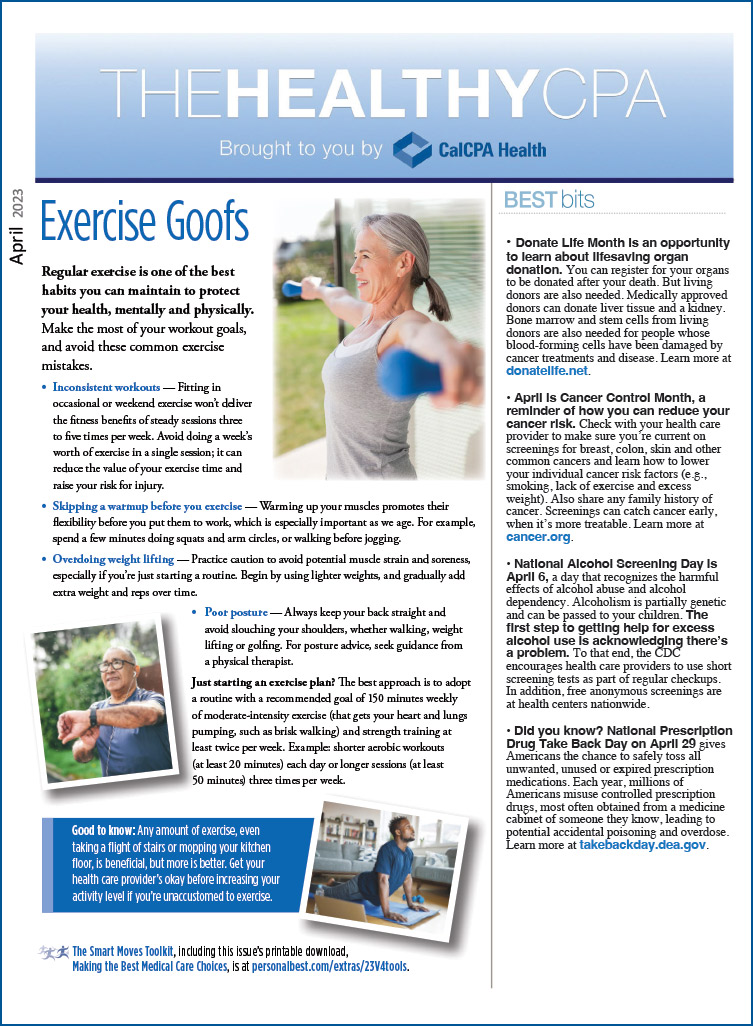 The eMagazine dedicated to improving members’ well-being
The eMagazine dedicated to improving members’ well-being
- Exercise Goofs
- Sleep Guide
- Storing Medications
- Peer Pressure: Not Just for Kids
- Do I need testing for inflammation?
- Check Your Playgrounds
In each issue you will find information and inspiration to help you with your health and wellness goals.
February is the month to focus on your heart health and make sure you are taking all the measures necessary to keep your heart strong. In 2020, about 697,000 people died from heart disease. [1] This is a stat that can’t be ignored.
Heart disease can mean different types of heart conditions for everyone. Coronary artery disease is the most common type and it affects the blood flow to your heart – having a decreased flow can lead to a heart attack. Heart disease can go undiagnosed for some time until symptoms start to occur and can lead to a heart attack, heart failure, or arrhythmia.
Symptoms of a heart attack can include pain or discomfort in the chest, back, neck, jaw, and one or both arms. Other possible symptoms are heartburn, nausea, lightheadedness, and shortness of breath.
Heart failure symptoms can happen over time and may include the following: shortness of breath, coughing or wheezing which produces mucus, swelling of ankles and feet, constant fatigue, increased heart rate, and confusion.[2]
An arrhythmia has to do with the rhythm of your heart. Sometimes your heart may beat too fast or slow, causing an irregular heartbeat. There are several types of arrhythmias such as Atrial Fibrillation and Tachycardia. When you have an irregular heartbeat, blood is not pumped properly throughout your body, making your lungs, brain, and other organs not function the way they should.[3]
It is vital that we learn about the warning signs and symptoms of a heart that needs tending to. Many of us get so busy in our daily life that we forget to pause and take care of ourselves and listen to our bodies. Talk to your doctor if you have any of these symptoms or feel that something isn’t quite right.
More heart-healthy articles will be coming soon. CalCPA Health understands how important it is to shed light on different health topics – so our members can have the tools and resources needed to be the best health advocate possible!
_____________________________
[1] https://www.cdc.gov/heartdisease/about.htm
[2] https://www.heart.org/en/health-topics/heart-failure/warning-signs-of-heart-failure
[3] https://www.heart.org/en/health-topics/arrhythmia/about-arrhythmia
May is Skin Cancer Awareness Month and a good time to learn about skin cancer and to understand just how serious this condition is. Each year over 5 million cases are diagnosed in the United States alone. Skin cancer is the most common type of cancer. There are different types of skin cancer:
With summer just around the corner, you may find yourself spending more time outside. One thing to do before leaving your house each day, not just during the summer months, is to apply sunblock. Sunscreen is extremely important in protecting your skin from the sun’s harmful rays. It also aids in helping your skin from premature skin aging such as age spots and wrinkles. Also, seeing a dermatologist once a year can help in early detection of skin cancer. Prior to seeing a dermatologist, you can perform a self-exam and be prepared to show the doctor any unusual or changed moles or spots on your body.
Sunblock is one way to help protect your skin, but there are other ways such as wearing a hat, a long sleeve shirt and pants, sunglasses, and staying in the shade. It is also key to reapply sunblock throughout the day, especially if you are in the water. Ultraviolet (UV) rays from the sun cause most skin cancers. The UV rays are the strongest between 10 am to 4 pm, so during those hours, you want to make sure you protect yourself.
By taking precautions, you are helping protect yourself and your family from the sun’s harmful UV rays. Make it a point to learn about skin cancer and how to help prevent it – this will allow you to go outside and enjoy the fresh air safely!
Since 1949, the month of May has been recognized as “Mental Health Month”. It was established to help reduce the stigma surrounding mental conditions such as depression and bipolar disorder. At that time, many people didn’t talk about how they were feeling and suffered alone. Help wasn’t readily available due to the lack of knowledge about such illnesses. Over the decades, mental health doctors and researchers have learned about the many faces of mental illness and how to help those struggling.
Stats show that in 2019, nearly 50 million or 19.86% of adults in America experience a mental illness. (Source) The past two years of the pandemic resulted in a new level of stress and anxiety into our lives, creating a growing number of both adults and youth suffering from major depression. Read more
Mental Health Month was established in 1949 to help reduce the stigma surrounding mental conditions such as depression, schizophrenia, and bipolar disorder. Mental health was never truly understood in early times, thus the reason people tried to hide their feelings and emotions so not to be judged and criticized by those around them. They didn’t have the tools and the knowledge to understand that mental health was an illness.
Times have changed and mental health is a conversation around the world with tools and treatment plans available to help those struggling with mental illness. Mental Health America (MHA) has the B4Stage4 Philosophy that everyone should take a moment to understand. The point is made that we do not wait years to treat cancer, diabetes, or other serious conditions and that when symptoms are first experienced, typically you are trying to get treatment right away. MHA notes that people should be paying attention to early warning signs of mental illness such as loss of sleep, feeling tired for no reason, feeling down or anxious, and other such symptoms. Read more
Resources
Plans & Services
News
Contact Us
Monday – Friday,
8am to 5pm (PST)
(877) 480-7923
Click below to contact our
Banyan Customer Service Team

